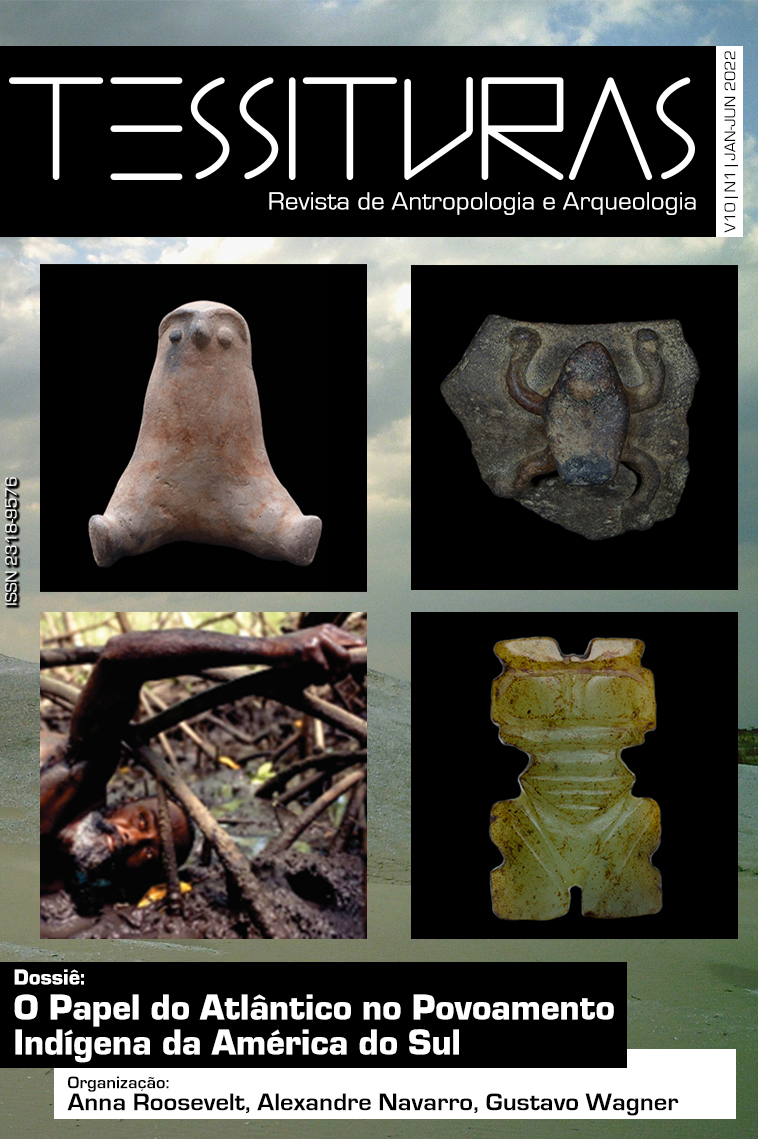DECIPHERING EAST-SIDE SOUTH AMERICANS INDIGENOUS POPULATIONS DYNAMICS
Resumo
The impressive results of the editorial project featured in this dossier on the prehistory of the Amazon viewed from the Atlantic flank of South America outline a scientific and ethical success story. The works presented can be seen as a vindication of Max Planck (1950) sinical views of change in science. “A new scientific truth does not triumph by convincing its opponents and making them see the light, but rather because its opponents eventually die and a new generation grows up that is familiar with it” He re-emphasized the some view in another part of the same book, asserting that “an important scientific innovation rarely makes its way by gradually winning over and converting its opponents: it rarely happens that Saul becomes Paul. What does happen is that its opponents gradually die out, and that the growing generation is familiarized with the ideas from the beginning: another instance of the fact that the future lies with the youth”. Thomas Kuhn (1962) “Structure of scientific Revolutions” provided a rational explanation and helped understand what happens in the mind of working researchers, scientists and scholars. The development of science studies implementing a sociological frame of analysis to scientific and scholarly institutions (Bourdieu 1988, Latour 1988) further clarifies how researchers and scientists communities effectively operate. It is now well-known that normal science operates along accepted assumptions and operational modes -paradigms - that are shared by researchers’ demes – networks -. This demic structure tends to enforce adhesion to the dominant paradigm at the exclusion of any alternative. Fortunately, contradictory debates or confrontations of research agendas are also integral part of researchers, scientists, and scholars’ daily practices, allowing more effective explanation – sometime significantly delayed – to finally succeed. There is however, no final word in scientific research. A new emerging synthesis always generate new questions, launching a new cycle of conjecture and refutation (Popper 2002).Copyright (c) 2022 Tessituras: Revista de Antropologia e Arqueologia

This work is licensed under a Creative Commons Attribution-NonCommercial-ShareAlike 4.0 International License.
A revista Tessituras não cobra nenhuma para a submissão e publicação dos textos.
Ao realizar a submissão do texto o(s) autor(es) está (ão) concordando automaticamente com a publicação do mesmo, caso obtenha pareceres positivos dos avaliadores. Com a publicação o(s) autor(es) estará(ão) automaticamente cedendo os direitos autorais do texto para a Revista Tessituras. Os autores somente poderão publicar o mesmo texto em outras obras, veículos e/ou periódicos mediante autorização formal da Comissão Editorial Executiva da Revista Tessituras. Tal procedimento faz-se necessário porque a Revista Tessituras tem o compromisso de publlicar apenas textos originais.
A autoria do trabalho deve ser restrita àqueles que fizeram uma contribuição significativa para a concepção, projeto, execução ou interpretação do estudo relatado. Todos aqueles que fizeram contribuições significativas devem ser listados como coautores. Pessoas que participaram em certos aspectos do projeto de pesquisa devem ser listadas como colaboradores. O autor principal deve garantir que todos os coautores apropriados estejam incluídos no artigo. O autor principal também deve certificar-se que todos os coautores viram e aprovaram a versão final do manuscrito e que concordaram com sua submissão para publicação.
Os textos publicados na revista Tessituras possuem licença CREATIVE COMMONS de atribuição BY. Esta licença permite que outros distribuam, remixem, adaptem ou criem obras derivadas, mesmo que para uso com fins comerciais, contanto que seja dado crédito pela criação original. Esta é a licença menos restritiva de todas as oferecidas, em termos de quais usos outras pessoas podem fazer de sua obra.





